Maverick Life
The Labia reinvents itself – again
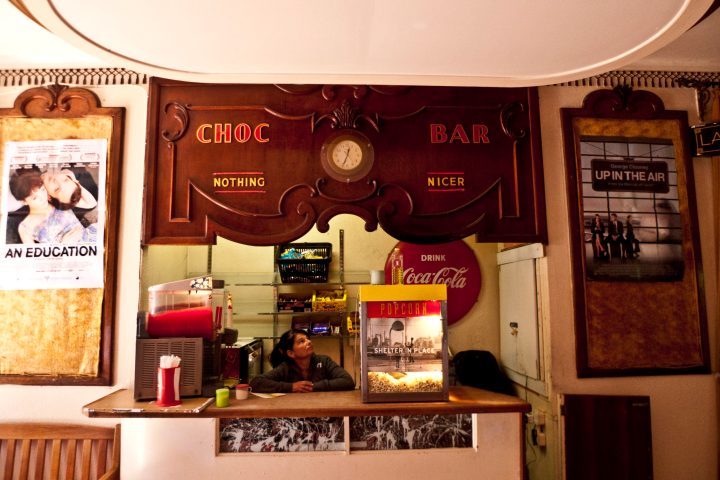
Forget about the giant pay-TV online services like Netflix, Showmax or DStv, the really cool arthouse movies have always been at The Labia in Cape Town. Now they’re streaming to a computer near you for the price of a single ticket. Here’s the back story.
There were once bioscopes that had Saturday matinees where, for a few shillings, you could sit in the dark and inch your hand northwards from your girlfriend’s knee and hope to smear her lipstick by the Pathe Newsreel.
An unwritten rule reserved the front rows for wide-eyed kids spilling popcorn and Coke, and back rows for overheated teenagers. Charlton Heston, John Wayne, Elvis Presley and Rock Hudson taught boys to be men and girls learned how to attract them from the likes of Elizabeth Taylor, Doris Day and Audrey Hepburn.
These days, in place of bioscopes, are shoebox cinemas in malls lined up like railway platforms and the kids make out in their cars. The playhouse atmosphere with wood panelling, scuffed red carpets and clippies (people who clip the tickets) with dented torches has gone – well, almost.
After more than 70 years of bums on seats and curtain calls, The Labia Theatre is not about to give up. For them, there’s no last picture show – they’ve developed a liferaft.
In the whole of South Africa, there’s really only one old-fashioned bioscope left, on Orange Street in Cape Town named, suggestively, The Labia. In it are amazing people who’ve worked there so long they’re monuments to the film industry and should be declared national treasures. I chatted to them a few years back before Netflix and Covid-19.
Right now, though, they’ve been struggling under lockdown with no audiences. But after more than 70 years of bums on seats and curtain calls, The Labia Theatre is not about to give up. For them, there’s no last picture show – they’ve developed a liferaft.
The building is a monument to an age when plaster curves were fashionable, scooped porticos housed elegant marble statues, dark woodwork was hand carved and heavy, red-velvet curtains de rigueur. It was opened by Princess Labia on 16 May 1949 as a ballroom and performing arts centre for the Italian Embassy. Without anyone noticing, someone moulded Mussolini’s coat of arms onto the wall.
Any Capetonian who’s been to a film in the last two decades that enthralled, shocked or gave rise to debates long afterwards probably saw it at The Labia. At the venue’s many festivals, queues snake out the building and down the pavement.
“When I saw Cinema Paradiso as a kid, I thought, ‘Hey, that’s me!’,” projectionist Redwaan Fridie told me, staring out the time-stained windows of The Labia one evening, remembering his District 6 childhood. “I hung around in the projection box at the Avalon Bioscope and collected bits of cut film, just like that kid Toto did. I loved those big projectors and the huge reels of celluloid. Still do.”
Redwaan had been the projectionist at The Labia for 24 years when I interviewed him. During that time, he lost his home in District 6. “Group Areas, you know. They said I must live in Bonteheuwel, but I wouldn’t live there, I boarded in Woodstock with Christine (the cinema’s clippie).” Then, because of the unsociable hours and endless weekend work, his wife left him.
Each day of the week, until lockdown slammed its carved wooden doors, you could buy a glass of palatable red or white wine from Harold Dirmeik, some popcorn from Clare Idesis and take your pick of four cinemas showing everything from arthouse to Avatar and, if your timing was right, catch a film festival.
Harold has the elegant air of a Parisian maître de and Clair flashes the dark eyes of her Russian father as she scoops kernels into paper containers with 26 years of practice, spilling nothing.
The man behind it all – who had to learn to exchange a lawyer’s suit and tie for T-shirt and jeans – is Ludi Kraus. He’s also got celluloidal blood. By the age of 16, he was managing his father’s cinema, The Alhambra in Windhoek, during school holidays.
“It was all commercial stuff like Jaws and karate, popcorn and romcoms,” he remembers. “There were three cinemas in town and the one with the best poster drew the crowds. I used to say to my father: ‘You have to educate people.’ But, you know, it was Windhoek in the 1960s.”
Every weekend, the queues were long and, for popular shows, snaked out onto the pavement.
Ludi studied law at the University of Cape Town. For the next 14 years, he followed his profession, putting on art films at local theatres as a hobby. But there was just something about The Labia Theatre. It called him. It took him two years to persuade the owners to sell the business to him and in 1989, he succeeded.
“I started here after one night’s break between jobs,” he said. “And I don’t think I’ve had a break ever since. The reels have to keep turning.” His first challenge was to not wear a suit and tie, a lawyer’s uniform. “My predecessor said for goodness sake get rid of the suit or you’ll chase people away. Now I work eight days a week – in jeans.”
By 2014, the place was tatty, the projectors were old and it looked like the arthouse was in decline. The necessary components for The Labia’s old equipment were no longer available and film distributors stopped providing movies on celluloid. The Labia would have to adapt or die.
At the time, Ludi was unsure of its future. “There are high overheads, the industry’s controlled by big majors, we don’t have the money to upgrade. We’re an island. Nobody other than me would be crazy enough to keep it up. The costs of a refit to digital would be astronomical.”
Then came salvation: Crowdfunding. Local startup Thundafund launched a plea in 2014 with a range of quirky acknowledgements, like your name on a new seat or a book of pretty tickets. The result was spectacular, proof of how much Cape Town loved its little bioscope. The money poured in.
New digital projectors and sound systems, refurbished seats, an outdoor tent and seating, even an entrance arch covered in roses followed. For those in the know, it became a perfect place to hang, grab a meal and glass of wine, and take in a show. Every weekend, the queues were long and, for popular shows, snaked out onto the pavement.
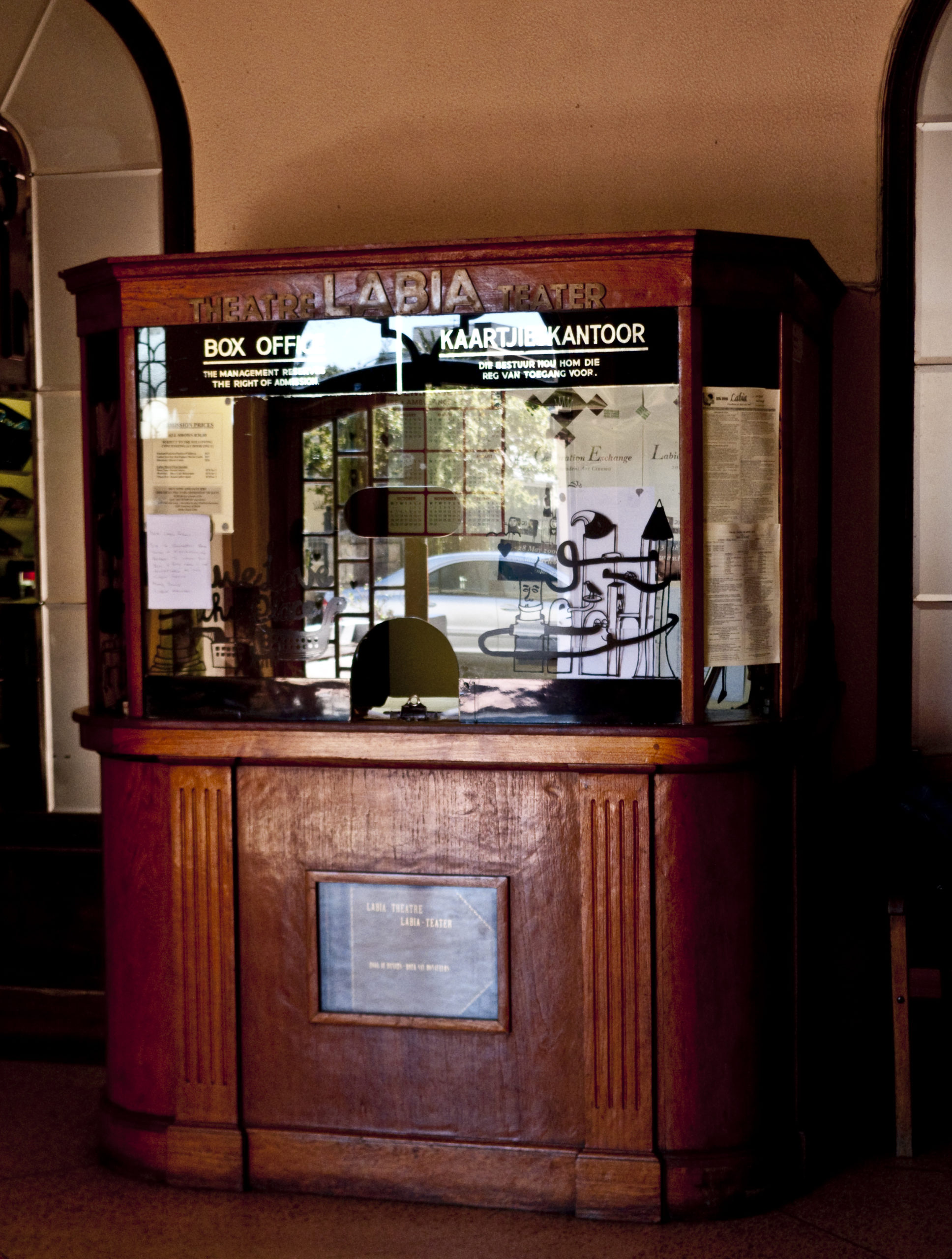
The Labia Theatre (Image Don Pinnock)
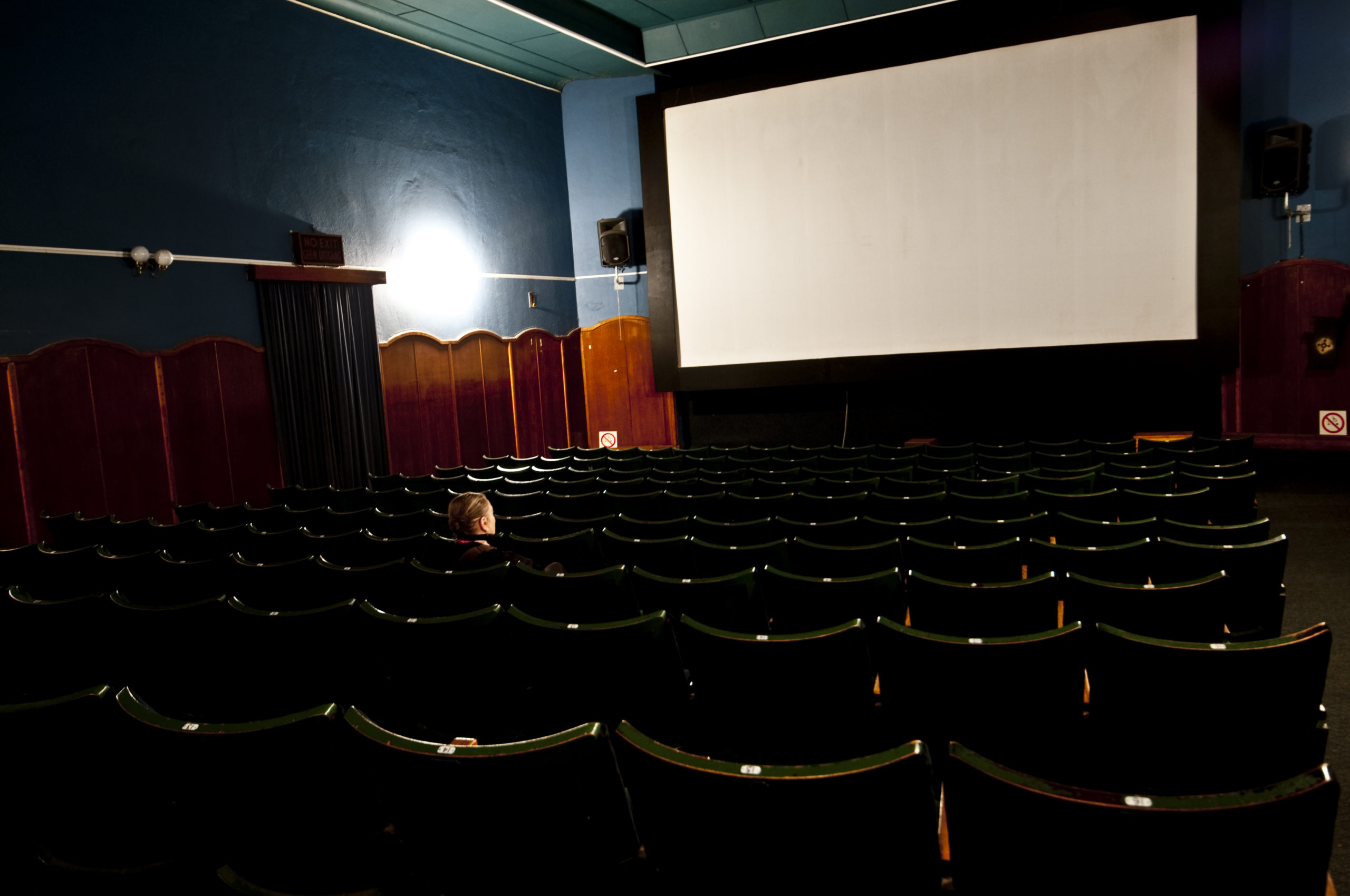
The Labia Theatre (Image Don Pinnock)
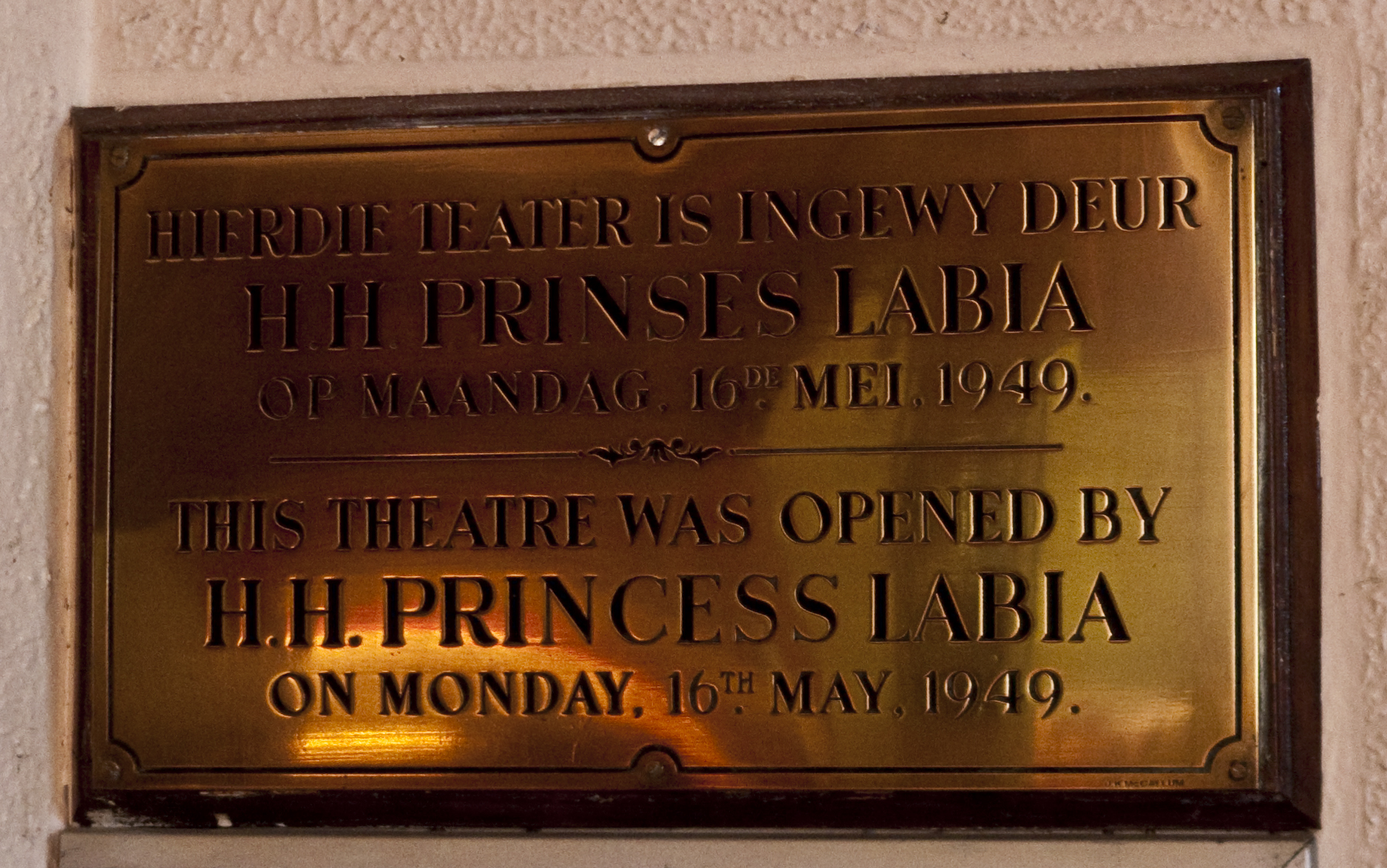
The Labia Theatre (Image Don Pinnock)
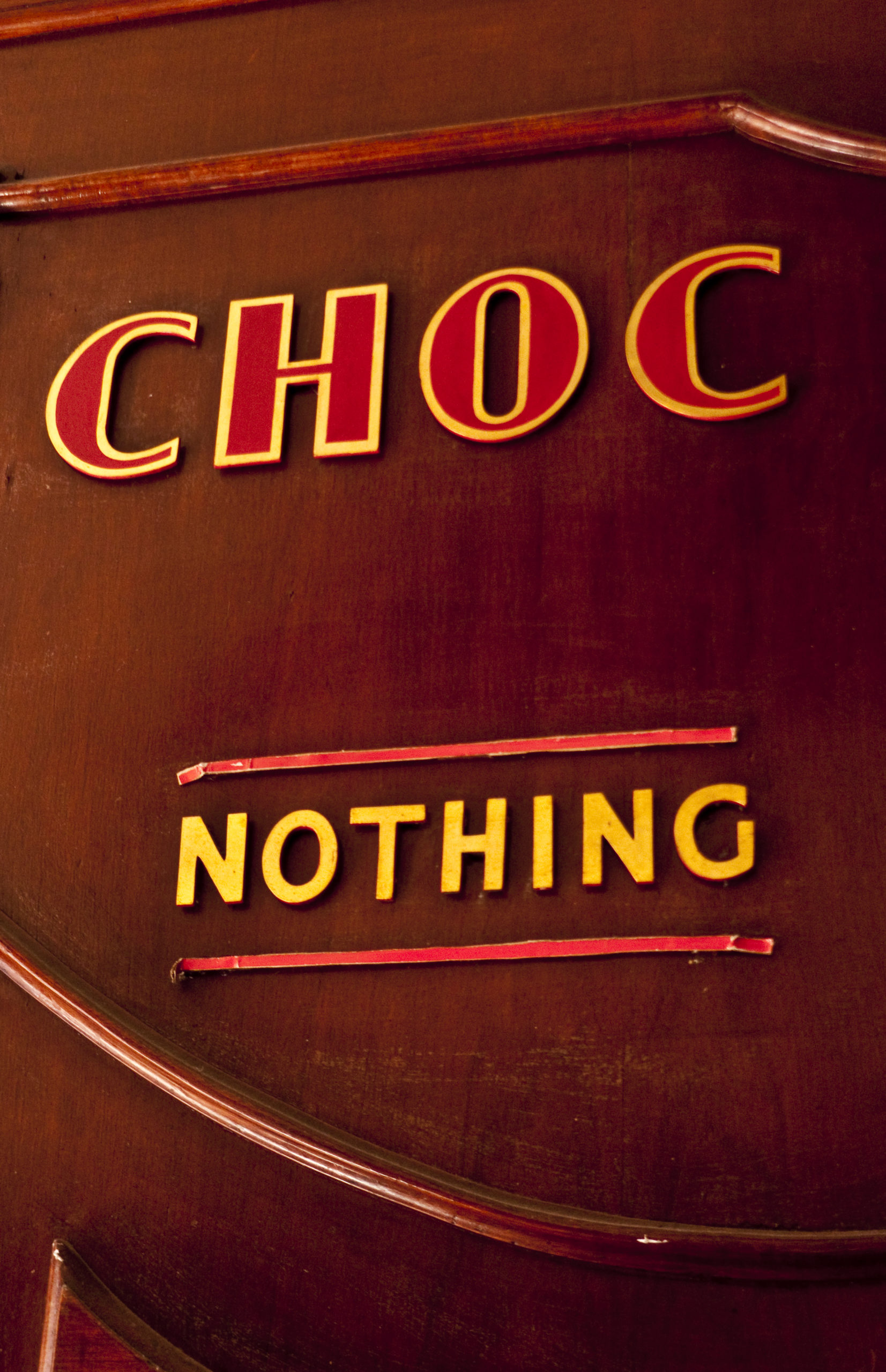
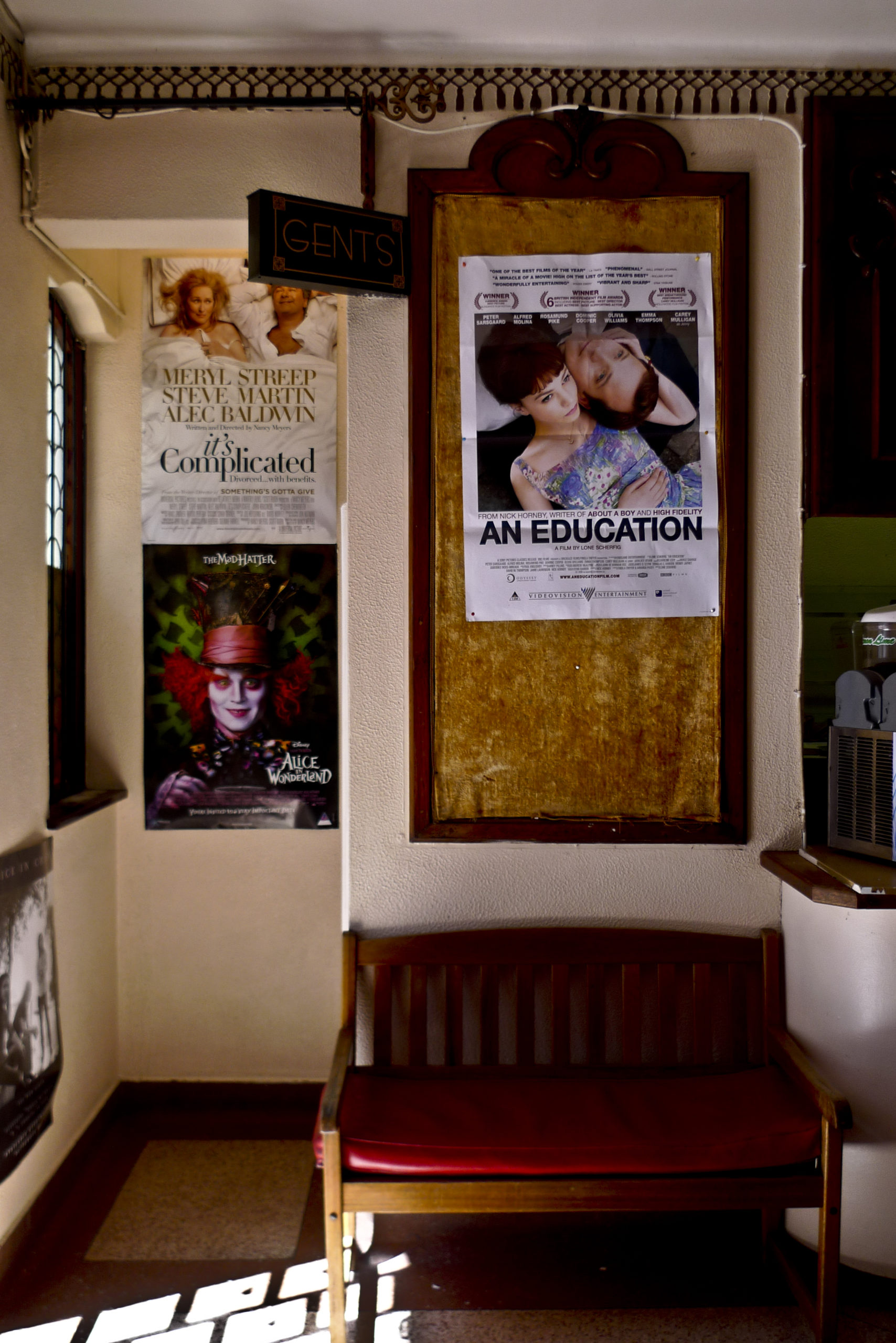
The Labia Theatre (Image Don Pinnock)
Christine Andrews can’t begin to guess how many tickets she’s torn in half. “Millions,” she says. “I’ve been here since 1978. The Labia’s her night job. By day, she cleans and looks after her grandchildren.
She used to have a torch and show patrons to their seats, but now “everyone sits where they like”. And she’s seen a lot of movies. “I love cinema,” she says. “I’d watch all the films. Friday was horror night and there were wonderful festivals. But I’m very picky these days.”
What’s it like being an usher for so many decades? “I meet a lot of people,” she says, ripping tickets as we speak. “But if The Labia was a person, I’d divorce them. It’s getting too much. I’m getting married, so maybe my husband will support me so I can leave.” (She didn’t leave.)
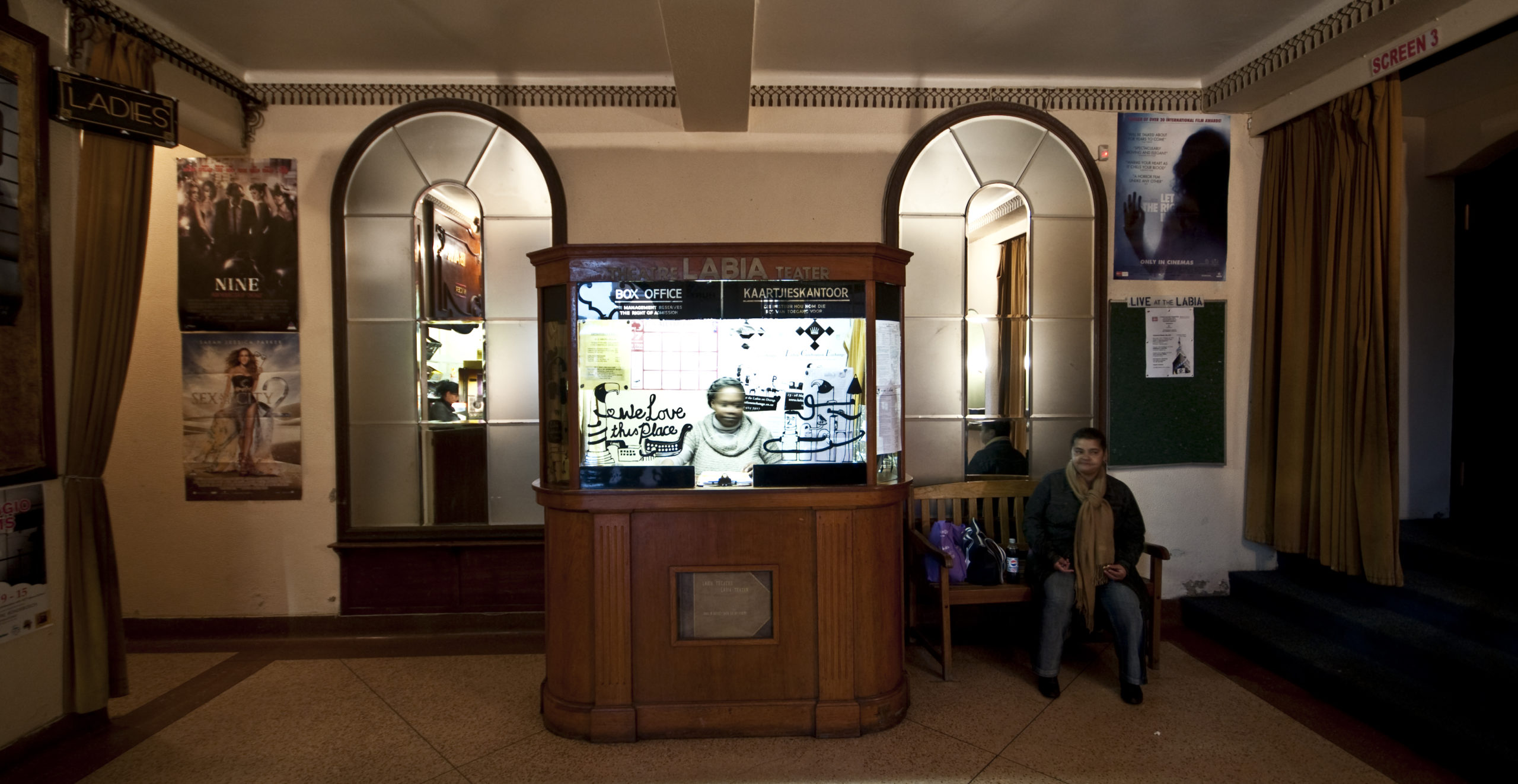
Rose Nhlapo and Christine Andrews – The Labia Theatre (Image Don Pinnock)
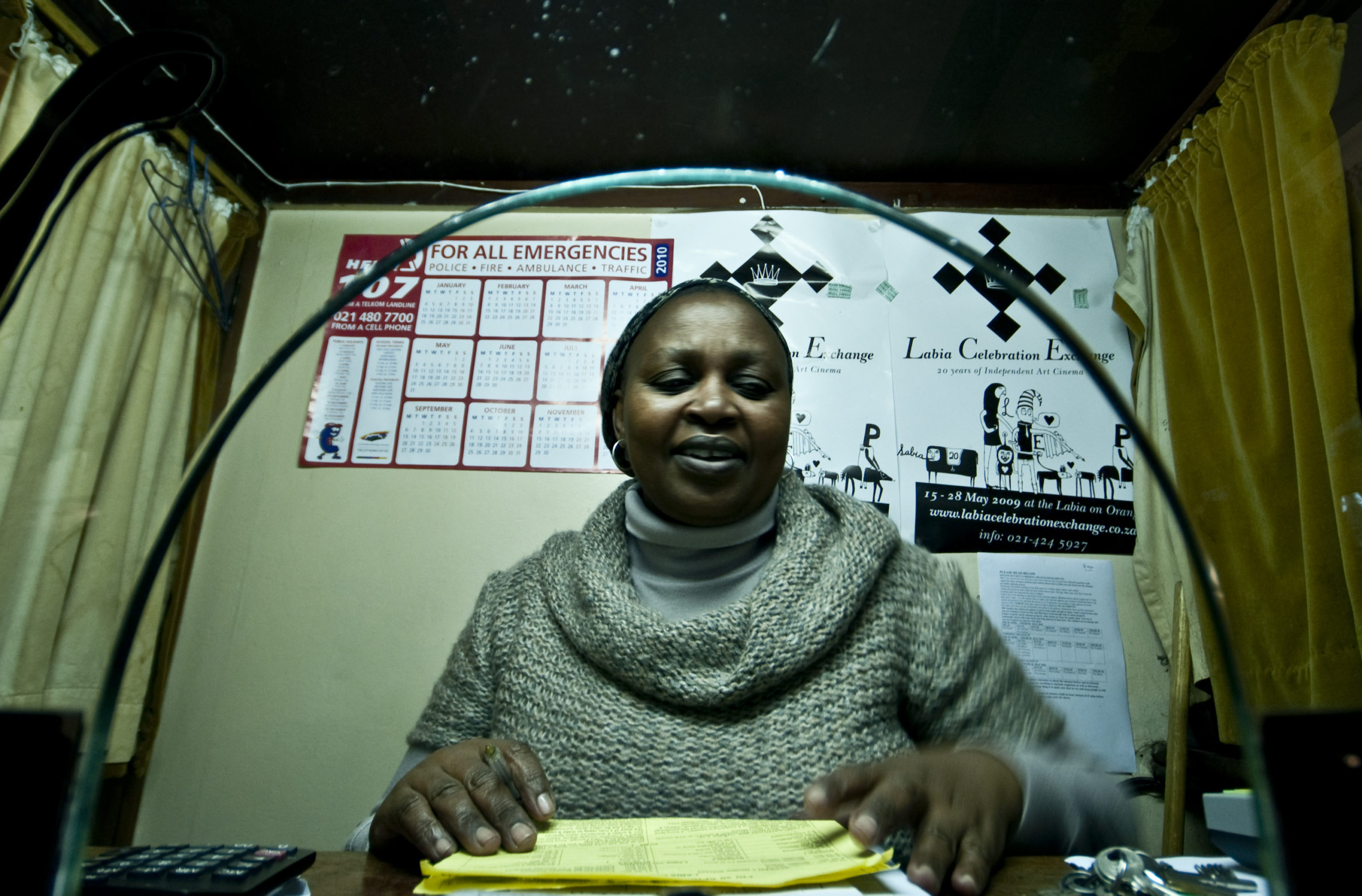
Rose Nhlapo from the Labia Theatre (Image Don Pinnock)
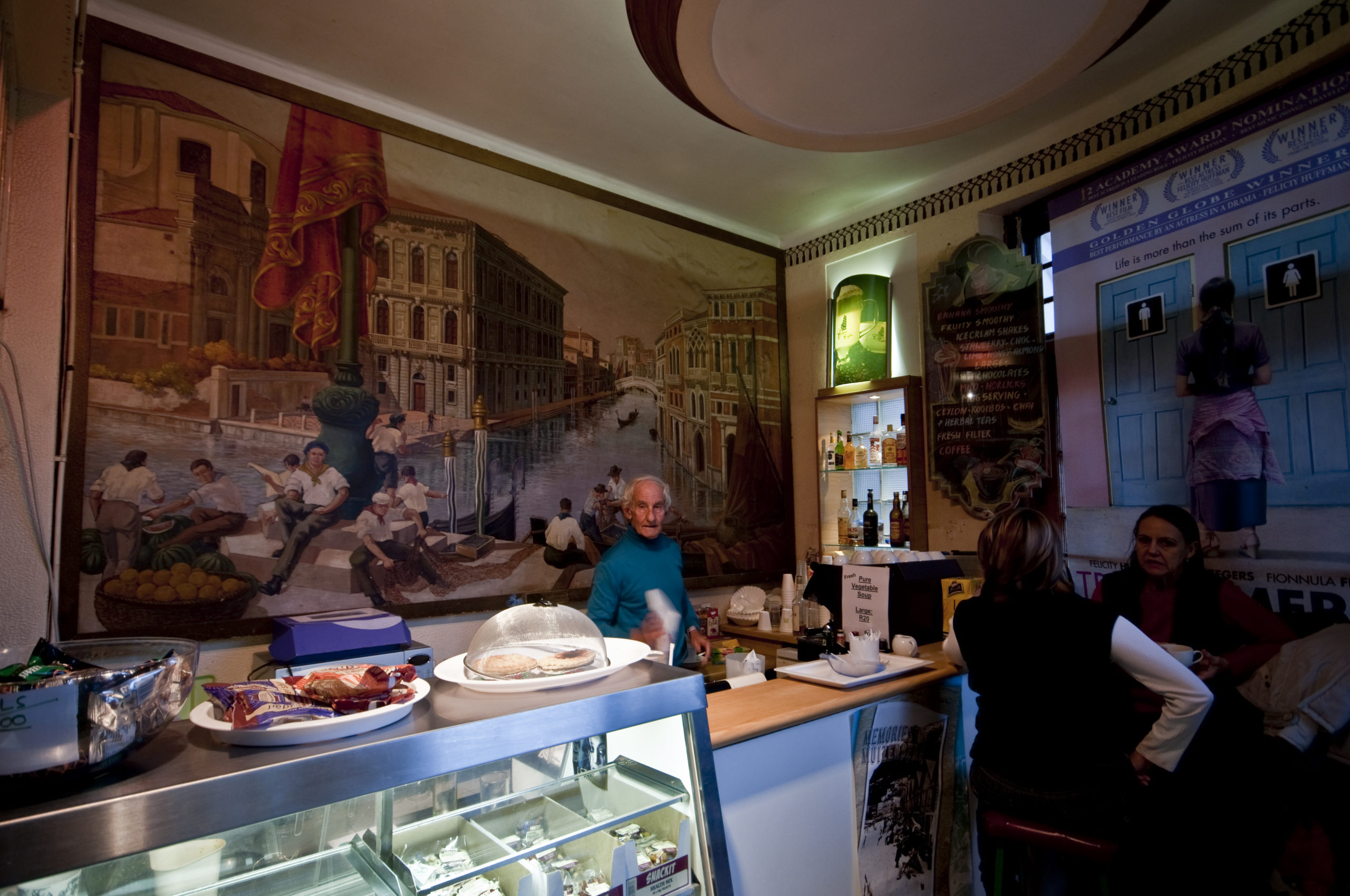
Harold Dirmeik from the Labia Theatre (Image Don Pinnock)
Cinemagoers right then were queuing up at the ticket kiosk where Rose Nhlapo was doing a brisk trade. She’d been there for 20 years and sells more single than double tickets because, she says, “people are comfortable to come here”. There was a cluster round the chocolate bar, waiting for popcorn and Harold got busy doing coffees, warming pies and pouring wine.
Harold used to run a restaurant in Sea Point and Ludi was his customer. “He would come in with his sexy girlfriend and I got to know them,” he tells me. “He said he needed a food and drink counter at The Labia and was I interested?
“There was nothing here when I came, just a dirty couch and this big picture of Venice. I put in a counter, fridges, chairs, everything. And it was a good move. The city centre’s growing up. There are more young people and they like the style of The Labia. It’s got heart.”
There’s always been a hint of trouble on the horizon, however. Ludi doesn’t own the building, which belongs to the local government and is attached to the Western Cape Racing and Gambling Board. It’s a valuable inner-city property that could probably earn more for its owner if it was demolished and developed as a block of flats. The costs Ludi has incurred turning it into four theatres could go up in a puff of dust.
I sat at Harold’s bar and asked what he thought about the future of The Labia. He poured a glass of red wine for me and stared out the door at the evening traffic rushing past. His answer back then, before Netflix, was prescient.
“First it was celluloid, then plastic film. Then it was DVDs and Blue-Ray and now 3D. It’s expensive to move film around. And messy. So the obvious future of cinema is to have a central office somewhere in the world from where films can be downloaded via satellite or cable right into the projector at the press of a button.
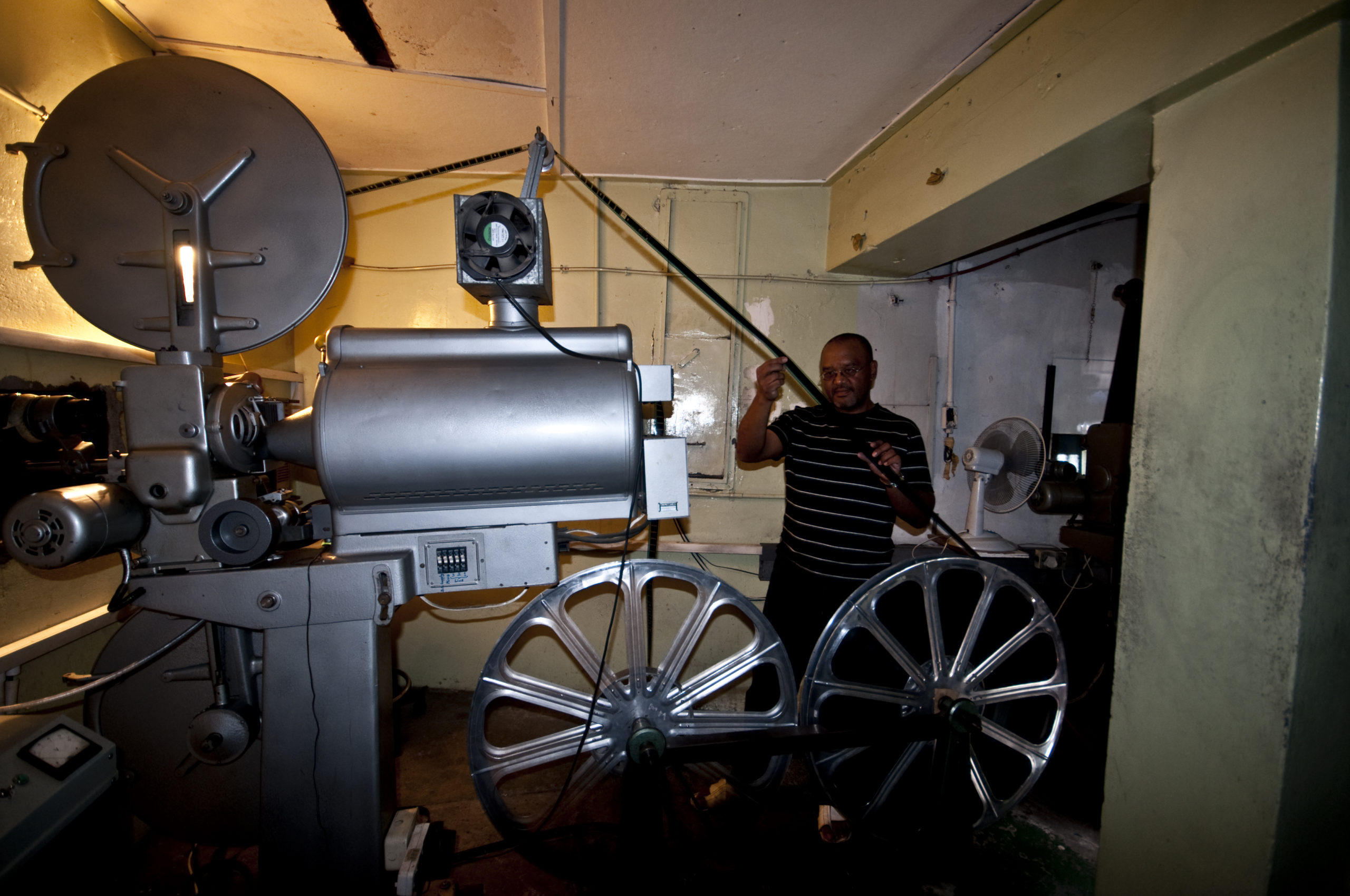
Redwaan Fridie at the Labia Theatre (Image Don Pinnock)
“Distributors will save millions. It’s coming. Then bye bye film and bye bye Labia. It’s only a matter of time. You can’t tool up a little arthouse cinema to handle that sort of thing.”
Over the following days, everyone working at The Labia told me it was a precarious job, arthouse was dying, technology was changing, movies were going to be beamed down from the sky, they’d been there too long, it was time for a change.
What changed was cinema itself. Harold’s predictions came more than true in the form of Netflix and home TV streaming put even the big, commercial cinemas in jeopardy. With worldwide lockdowns, it was to become one of the world’s fastest-growing industries.
What hope for a little arthouse in all that? But against all odds, The Labia blossomed. Rebecca Davis explained it best: “The cliché most often attached to The Labia is that walking into its dark interior is like ‘stepping into a bygone era’. The experience is certainly nothing like the slick, soulless operations of the major movie chains in this country. Tickets are purchased from an old wooden booth. A bar will serve you a beer or glass of wine to take inside one of the cinema’s four screens.”
All was going so well. Then the Covid-19 lockdown happened and The Labia had to close its doors. There was a deep silence for a few weeks – would it make it through this crisis? But something was brewing and it came in a WhatsApp: “The Labia is open for business – online.”
All the great movies you don’t see elsewhere are back. You pay R60 for your ticket online, get a code and the movie streams into your lounge. It’s even cheaper than before. You can assemble your private audience for the price of a single ticket.
So The Labia has reinvented itself yet again, in step with the times. Those who love the place both celebrate its renewal and mourn the ambiance which we hope will return when the damn virus goes away. Meanwhile, its faithful patrons await Harold Dirmeik’s wine and filo samosas, Clare Idesis’ popcorn and the friendly smile as Christine Andrews rips those old-fashioned coloured paper tickets.
But hey, the films are back and The Labia lives on, an arthouse chameleon in a time of change. DM/ML
To book online for home viewing go here.

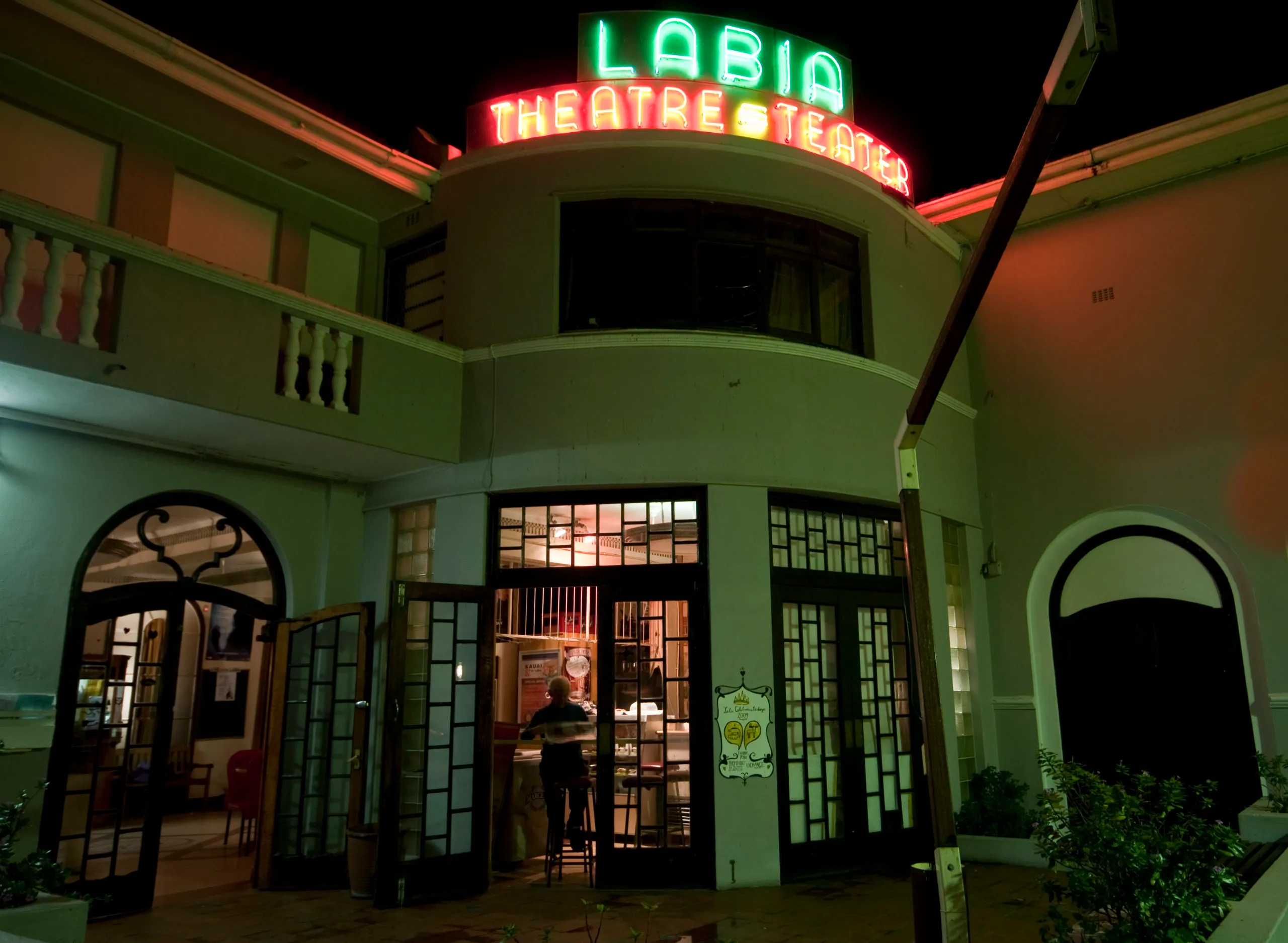
















 Become an Insider
Become an Insider